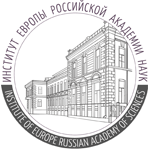institute of europe
the institute of europe of the russian academy of sciences
2-nd International Arctic Conference
- 16 February 2017
On February 16, 2017, Valery Zhuravel, leading scientific associate of IE RAS Centre for Northern Europe participated in the 2-nd international conference «Acrtic Region -2017. Shelf projects and sustainable development», held by the think-tank under the auspices of the Russian Government.
In his report, Valery Zhuravel stated that in 2009-2010 Russia started to actively cooperate with Western companies in developing reserves of the Arctic shelf. In particular, Russia launched collaboration with the French "Total", with the British "BP", with the American "ExxonMobil" and the Italian "Eni". The key idea of all the arrangements was Russia's access to Western investments and technology in exchange of the access to the Arctic resources for the Western partners. However, this collaboration pattern did not live up to the expectations. The cooperation was put on hold due to the introduction of sanctions against Russia, which were specifically aimed at preventing Russia from succeeding at its Arctic policy vector.
The sanctions affected up to 90% of Russian oil companies and the whole Russian gas sector. In its shelf projects, Russia relies on the imported equipment to the extent of 80 to 90%. There are around 200 Russian enterprises producing the equipment for the extraction of fossil fuels. According to the estimates of the Russian Ministry for Industry and Trade, though total import phase-out in this sphere will be possible after 2018-2020, it remains the only viable strategy. Russian companies need modern domestic industrial and technologic equipment, primarily for deep-sea drilling under difficult climatic and geologic conditions. The use of Western technologies should be combined with the innovative development of the internal industrial and scientific base, so that the whole economic potential in Russia's Arctic Region does not become vulnerable to external pressure and discrimination.
https://energy.s-kon.ru/arktika-2017/


https://energy.s-kon.ru/arktika-2017/


